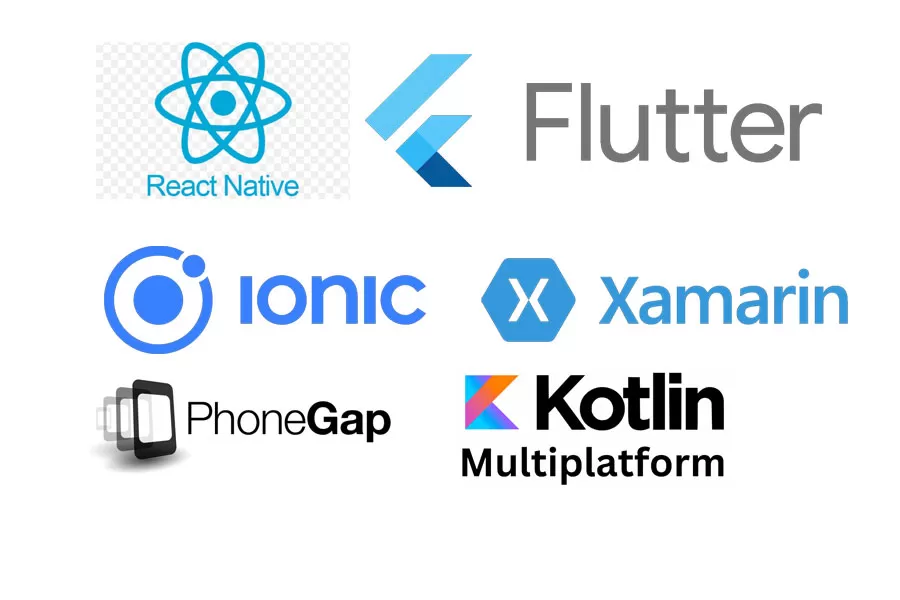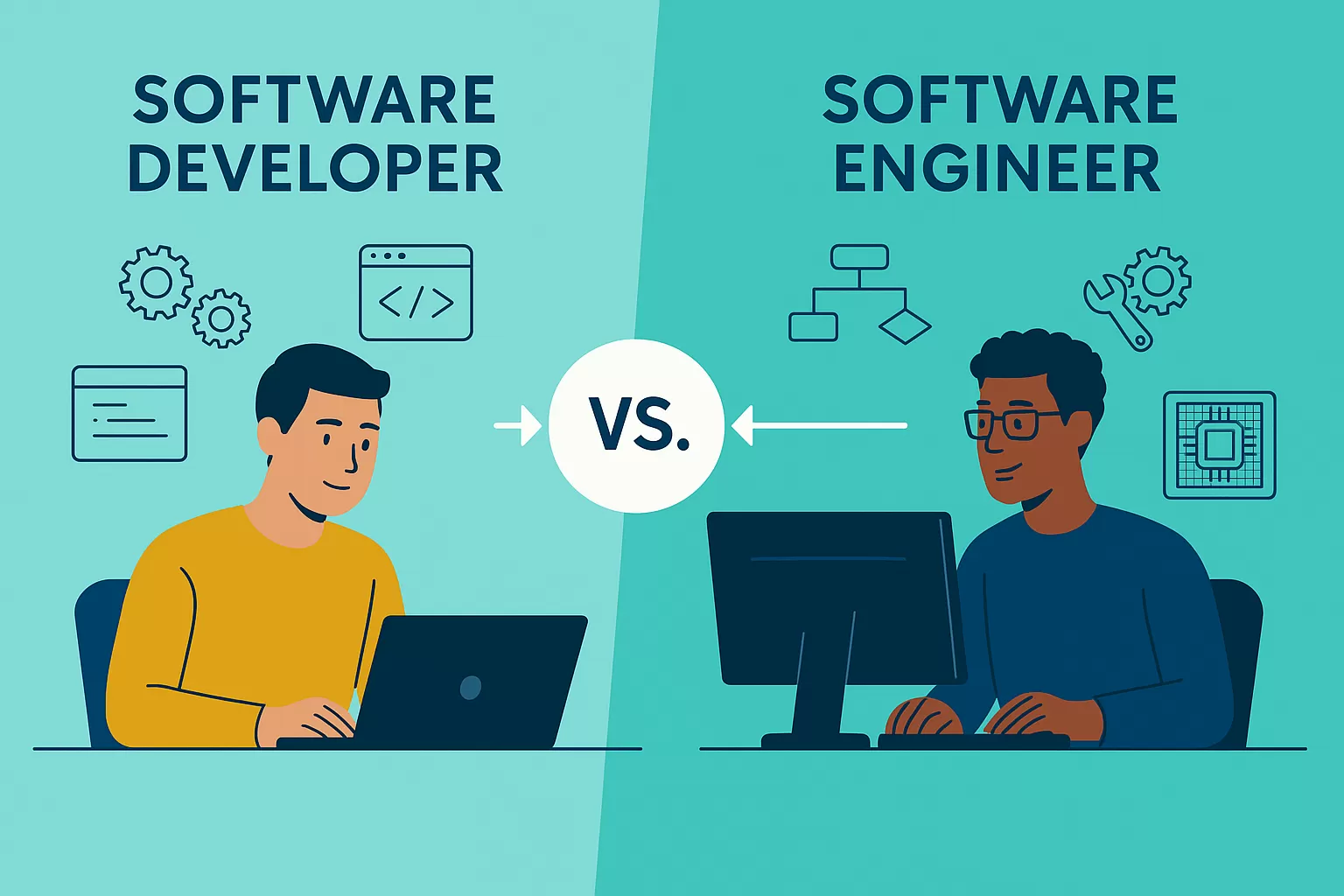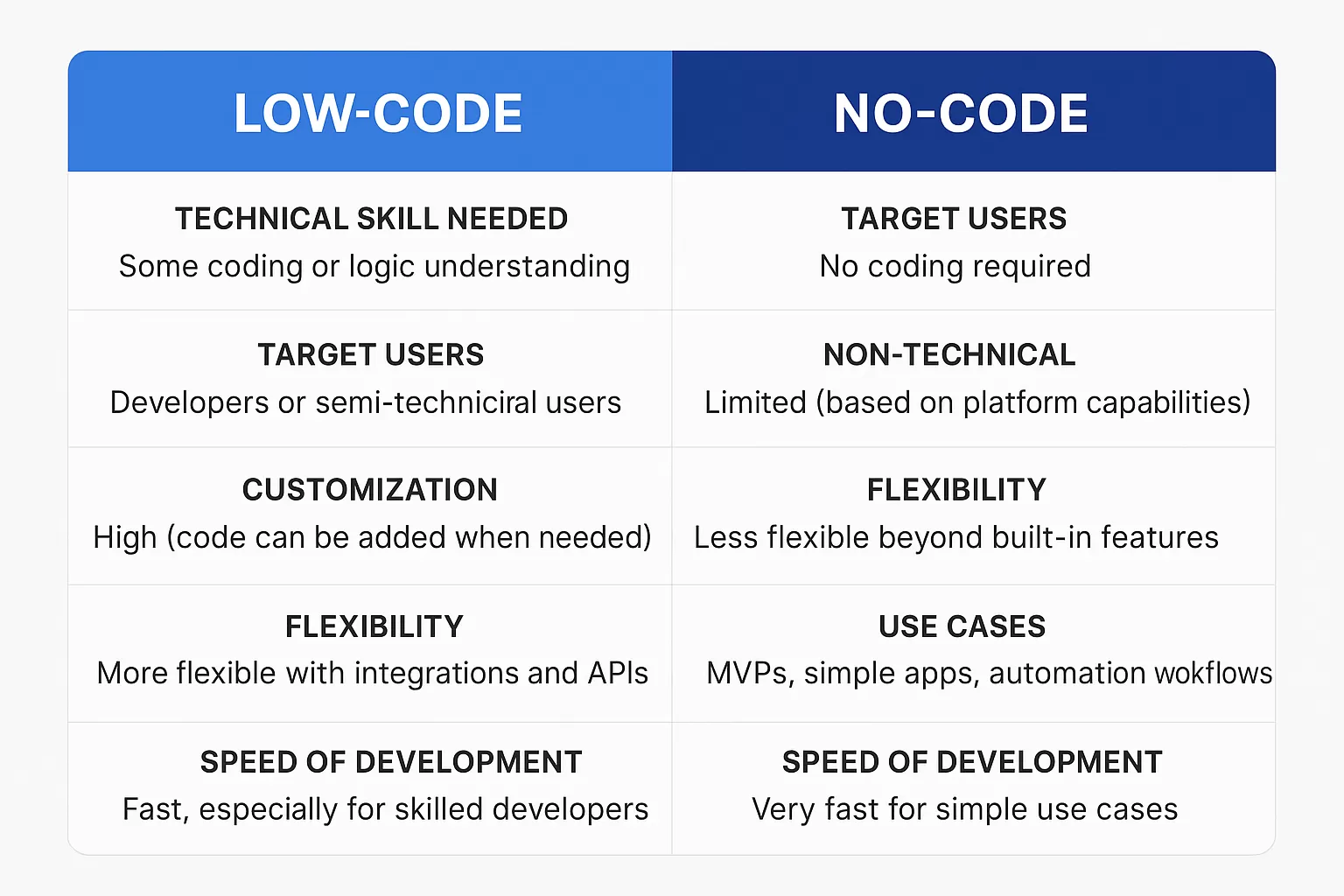
- Services .
-
Hire Developers .
- Industries .
- Company .
Explore detailed insights, expert opinions, and updates in our blog. Stay informed, discover new perspectives, and enhance your knowledge with every read.

In the world of startups, speed, flexibility, and innovation are everything. But using a generic or "off-the-shelf" software solution in 2025 could be the very thing holding your business back.
This is where custom software comes into play. Whether you're building a product, streamlining operations, or scaling rapidly, a tailored solution gives you exactly what you need, nothing more, nothing less.
Let’s explore why custom software is no longer a luxury—but a strategic move for startups.
🔧 1. Tailored to Your Unique Business Needs
Unlike off-the-shelf software that’s built for the masses, custom solutions are designed around your exact workflows, user base, and goals.
✅ Benefits:
🧠 Use Case: A food delivery startup might need a unique driver-dispatching algorithm that generic CRMs just can’t handle.
📈 2. Scalable As You Grow
Startups often begin small—but you’re building to scale. With custom software, you're not stuck with tools that can’t handle your growth.
✅ Scalable Features:
🧠 Why it matters: As you add users, features, or locations, your software should scale without crashing or slowing down.
🔒 3. Enhanced Security & Compliance
Security is a major concern in 2025, especially with data privacy laws like GDPR, CCPA, and India’s DPDP Act.
✅ Custom security features:
🧠 Why trust matters: Custom software lets you build security from the ground up, not patch it on later like most templates.
💸 4. Long-Term Cost Efficiency
Yes, custom software can cost more upfront. But in the long run, it saves you time, subscription fees, and tech headaches.
✅ Cost-saving factors:
🧠 Example: Instead of paying for 3–4 SaaS tools, you build a single app that does everything you need.
⚙️ 5. Better Integration With Your Stack
Startups often use a mix of tools: CRMs, payment gateways, APIs, analytics, and more. Custom software lets you seamlessly integrate everything in one ecosystem.
✅ Common integrations:
🧠 Why integration matters: You avoid data silos and manual processes, saving your team hours every week.
👥 6. Improved User Experience (UX)
Generic software often compromises on UX to fit many users. But custom software gives you the power to design every screen and interaction around your target audience.
✅ UX advantages:
🧠 Why it converts: Good UX = happy users = higher retention and revenue.
🎯 7. Competitive Advantage
When your software is built for you, it reflects your brand, innovation, and efficiency. This sets you apart from competitors still using cookie-cutter platforms.
✅ Examples:
🧠 In short: Custom software becomes part of your USP (Unique Selling Proposition).
📊 8. Data Ownership & Control
Off-the-shelf tools often control or limit access to your data. With custom software, you own your data, control how it's used, and ensure full transparency.
✅ Benefits:
🧠 Big win: Your startup's most valuable asset is data—owning it fully is a huge advantage.
❌ Bonus: Pitfalls of Off-the-Shelf Software
| Problem | Impact |
|---|---|
| Limited customization | Can’t adapt to your business |
| Feature overload | Slows down teams |
| Licensing fees | Hidden monthly costs |
| Vendor lock-in | Hard to migrate |
| Poor support | Delayed issue resolution |
✅ Conclusion
In 2025, custom software isn’t just about tech—it’s about growth. For startups with big visions and bold ideas, a tailored solution gives you the power, speed, and flexibility you need to stand out.
💡 Whether it’s an internal dashboard, a customer-facing app, or a scalable SaaS platform, investing in custom software is investing in your startup’s future.

How to Economically Hire Web and Mobile App Developers

Cross-Platform App Development Guide for Startups

Custom Web Application Development Guide for Startups

AI in Foreign Policy: Transforming Global Diplomacy

How AI and 5G Are Reshaping the Future of Telecom

How AI Is Shaping the Future of Entertainment Content

Solving Tech Debt: Smart Strategies That Boost Growth

Software Developer vs. Software Engineer: What’s the Difference?

Low-code vs. no-code app development

What Is Digital Transformation? A Modern Business Guide